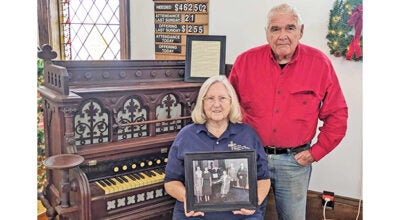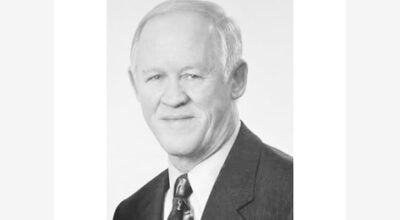Berrien reacting to pot ruling
Published 4:28 pm Thursday, June 14, 2012
ST. JOSEPH — Michigan Supreme Court recently overturned as too restrictive lower court interpretations of the medical marijuana statute.
The high court, in its first major ruling arising from medical marijuana use, found the state’s voter-approved law on medicinal pot provides broad legal protection from prosecution — even for patients not registered for a state medical marijuana card.
“It didn’t get much (attention),” Berrien County Prosecutor Art Cotter said Thursday, “but it’s a significant case.”
In the Oakland County case, the court said the law allows a person arrested on a marijuana-related offense to mount a medical marijuana defense, so long as its use was recommended by a doctor after the 2008 enactment of the law and before the arrest.
The court found defendant Alexander Kolanek could not use such a defense because his doctor’s recommendation followed his arrest.
In a Shiawassee County case, the high court said defendant Larry King deserved an evidentiary hearing on whether he kept his medical marijuana in what the law would define as a secure facility.
“By the Supreme Court overruling the Court of Appeals,” Cotter told the board of commissioners administration committee, “Somebody who’s growing marijuana and claiming it’s for medical use can assert that defense and potentially have the case dismissed” even if exceeding the 12-plant limit.
With the burden of proof shifted to the defendant, “They have to show it’s not an unreasonable amount to assure the uninterrupted supply of marijuana,” Cotter said. “The scenario I’m dealing with is the police get a call, there’s 12 marijuana plants growing in the backyard. Neighbors complain. The person has a card and is under the limit of 12, but they’re not going to comply with keeping it locked inside because they don’t want to pay for lights and electricity. They assert the affirmative defense and may actually win. That’s a green light. Every teen-ager in every neighborhood is going to be doing midnight raids on their stash.
“I’m formulating a response on how I’m going to deal with this in Berrien County,” Cotter continued. “Prosecutors need to decide how much their tolerance is over 12 to make them come in and prove the affirmative defense. I can’t really pierce the validity of the issuance of that card, but in the affirmative defense the burden’s on them and I can challenge the B.S. of why they’re getting cards. In my judgment, 95 percent are bogus.
“I’m not going to let people grow marijuana in the open. For law enforcement, patients and the public, you have to give a bright line. Twelve is 12. If you have more than that, I may bring you in. One incentive to stay within the limit is an Attorney General opinion that, once seized, nobody can order a police department to give back marijuana and commit a federal felony. You may or may not win, but even if you win, you’re not going to get your dope back. I oppose decriminalization. We need to give the public the choice again to limit it to cancer patients, HIV, multiple sclerosis, glaucoma.”
Chairman R. McKinley Elliott, an attorney, said since the statute requires doctor-documented debilitating medical conditions, “Let’s deal with the licensed, regulated physicians if they act outside the authority delegated by the Legislature. The Legislature needs to rein them in. They’re prostituting their license. They’re bottom feeders in the physician aquarium.”
“There’s no will to do that,” Cotter said. “A percentage of the Legislature wants to legalize and tax it.”





